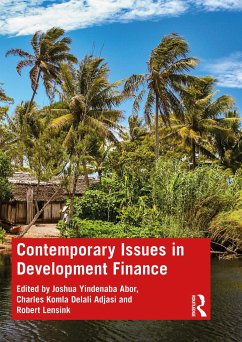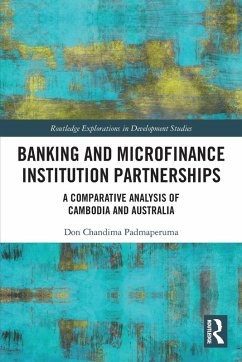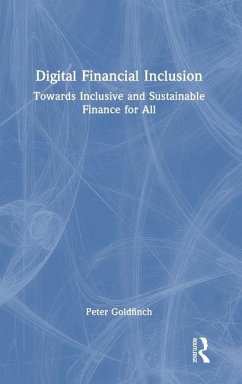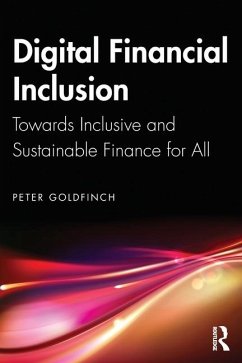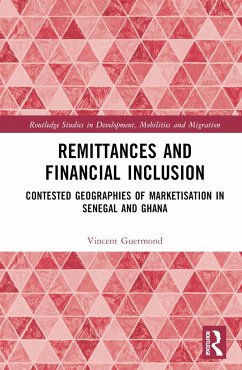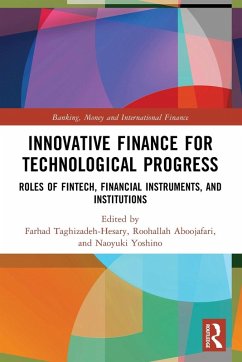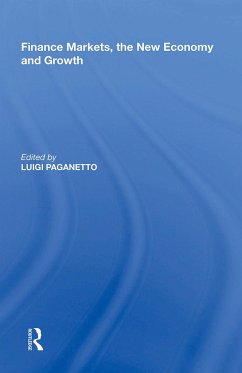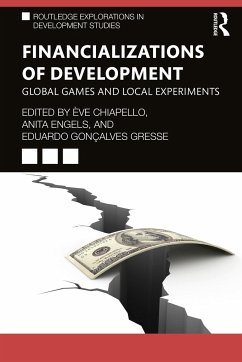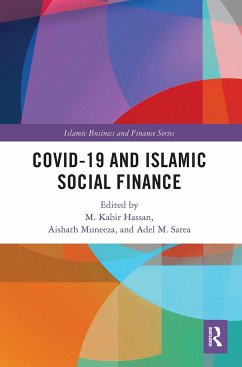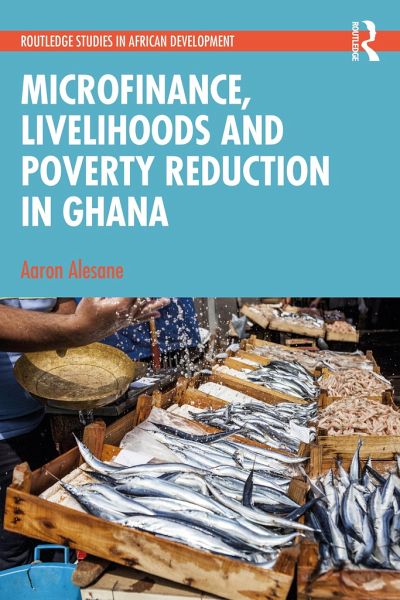
Microfinance, Livelihoods and Poverty Reduction in Ghana
Versandkostenfrei!
Versandfertig in 6-10 Tagen
40,99 €
inkl. MwSt.

PAYBACK Punkte
20 °P sammeln!
This book assesses the role of microfinance in the construction of livelihoods for poverty reduction in the Northern Savannah of Ghana, analysing the current microfinance landscape and financial services in the region.The book analyses the current microfinance landscape and financial services in Ghana. In doing so, it demonstrates the key factors for designing microfinance products and services to ensure greater uptake and outreach enhancing the sustainability of microfinance service providers. Chapters explore the impact of access to microfinance on livelihood diversification, asset accumulat...
This book assesses the role of microfinance in the construction of livelihoods for poverty reduction in the Northern Savannah of Ghana, analysing the current microfinance landscape and financial services in the region.
The book analyses the current microfinance landscape and financial services in Ghana. In doing so, it demonstrates the key factors for designing microfinance products and services to ensure greater uptake and outreach enhancing the sustainability of microfinance service providers. Chapters explore the impact of access to microfinance on livelihood diversification, asset accumulation patterns and welfare outcomes. In addition to assessing the role as well as of microfinance as an anti-poverty tool, the book presents new theoretical frameworks and models, including the microfinance livelisystem framework (MFL). This unique framework, which combines and goes beyond existing frameworks, situates the microfinance industry within national and international financial and economic ecosystems and presents the interrelationships between institutions providing services for the construction of livelihoods.
Offering new theoretical frameworks and models developed for the microfinance industry with universal application, this book will be of particular use to students and scholars of Development Studies, Development Finance, Poverty and Inequality Studies, Rural Development and Sustainable Finance.
The book analyses the current microfinance landscape and financial services in Ghana. In doing so, it demonstrates the key factors for designing microfinance products and services to ensure greater uptake and outreach enhancing the sustainability of microfinance service providers. Chapters explore the impact of access to microfinance on livelihood diversification, asset accumulation patterns and welfare outcomes. In addition to assessing the role as well as of microfinance as an anti-poverty tool, the book presents new theoretical frameworks and models, including the microfinance livelisystem framework (MFL). This unique framework, which combines and goes beyond existing frameworks, situates the microfinance industry within national and international financial and economic ecosystems and presents the interrelationships between institutions providing services for the construction of livelihoods.
Offering new theoretical frameworks and models developed for the microfinance industry with universal application, this book will be of particular use to students and scholars of Development Studies, Development Finance, Poverty and Inequality Studies, Rural Development and Sustainable Finance.





